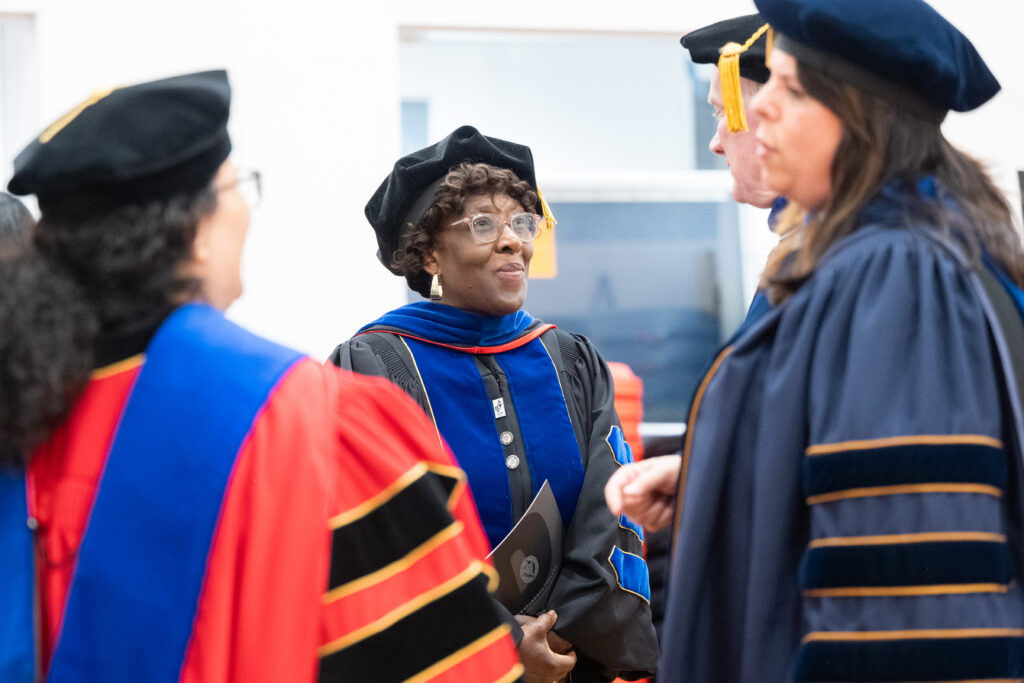Professor Comfort Ateh
Witness to Justice & Love
Comfort Ateh, Ph.D., Professor of Education
As a child in Cameroon, Professor Comfort Ateh’s mother would often take her to local farms after work, places where peanuts, cocoyams, and corn grew. She remembers being captivated by the quiet miracle of growth. She would dig in the soil to see how a grain of corn turned into a shoot and would stand before a blossoming peanut flower in contemplative observation. It was an early experience of wonder, and it stirred in her countless questions born from a desire to understand the world before her.
St. Thomas Aquinas said wonder is a desire for knowledge, and knowledge Professor Ateh pursued. She studied agronomy, earned a Ph.D., and worked with farmers across continents. Unfortunately, though, the deeper she went into science and industry, the more she encountered exclusionary behaviors among coworkers and her superiors.
The barriers were so profound she changed fields, becoming a science teacher in Sacramento, California. There, she bridged her training in agronomy with the classroom, building a garden and watching her students’ eyes fill with the same wonder she had known as a child as they observed seedlings beginning to sprout.
Yet once again, Ateh was confronted with injustice, experiencing firsthand how systems and common practices were failing her students. “Why do I teach a class, and my kids still fail the test?”
That persistent question of justice prompted her to pivot once more – this time to study classroom assessment, not as a tool of judgment, but as a matter of justice to better help students learn and thrive. Instead of cultivating agriculture, she was cultivating young minds.
At Providence College, Ateh brings with her the wonder of her childhood, expertise in multiple fields, and her experiences searching for justice. She teaches with a characteristic care for the whole student, a care she sees as coming straight from our mission. She begins each course by asking students to share their stories—who they are, what they carry, and how she can support them. “We need to ask students about their lives, their days. It’s not a waste of time—it’s how we humanize education,” she says. “It’s a lot of work, but it’s worth it.” She gives feedback before grades, always asking: “Does this reflect what the student truly learned?” Here, justice is joined with love.
Though she hadn’t originally sought out a faith-based institution, Ateh has come to embrace Providence College’s Catholic and Dominican mission, attending retreats, engaging in dialogue, and exploring where science and faith meet. “Faith should be driving you,” she says. “Your work is at the service of God’s people.” From the soil of her childhood to the hearts and minds of her students, she continues the work of planting seeds—of knowledge, justice, and contemplative love.






